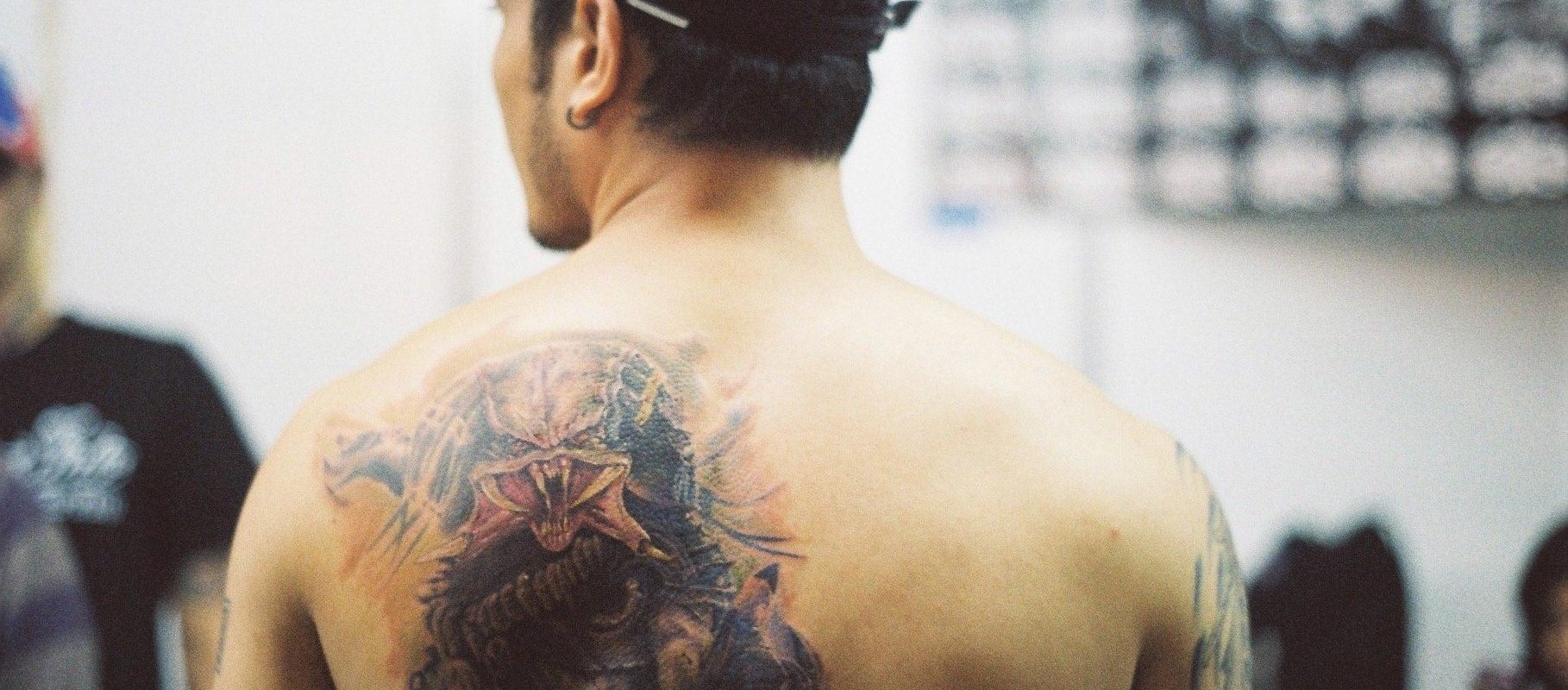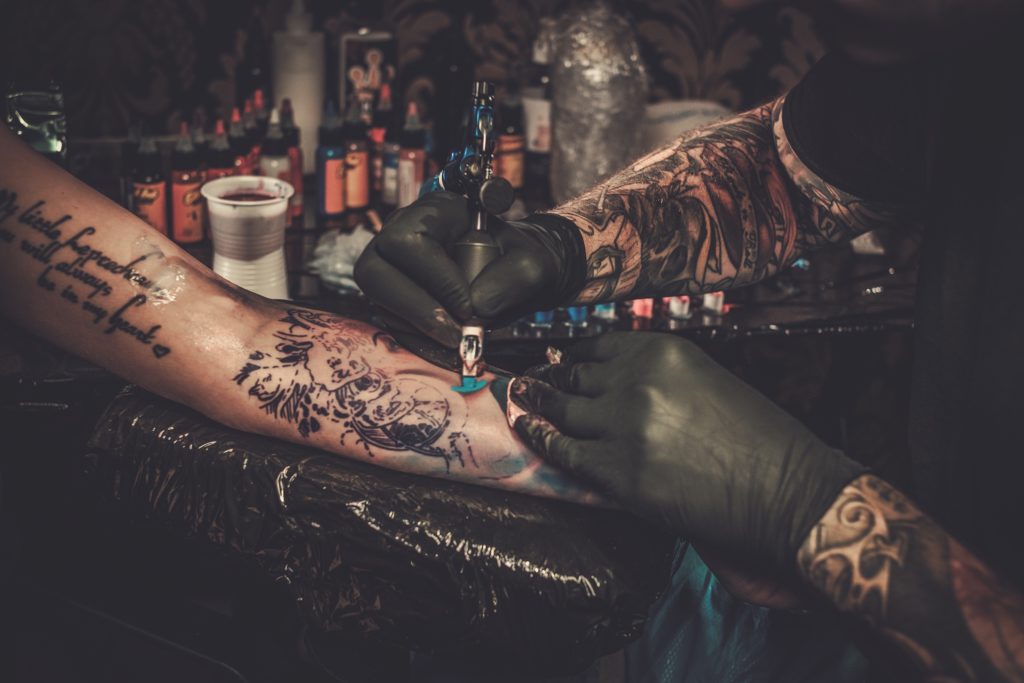The Royal Air force (RAF) is relaxing previously restrictive policies on the tattoos of new recruits. RAF eligibility criteria could exclude any recruit with tattoos visible above the neck or below the sleeve cuff. A new amendment doesn’t reverse tattoo these restrictions – but it does allow more flexibility and opens recruitment opportunities for more tattooed citizens who want to serve their country through an Air Force career.
The new policy will allow recruits cosmetic eyebrow tattoos and one finger tattoo – provided a ring will cover it. Neck tattoos that are below the hairline will be allowed, as will ink on the side of recruits’ necks that will be covered by standard RAF uniform.
https://www.recruiter.co.uk/news/2019/06/raf-allows-candidates-tattoos-restrictions
As usual, celebrities top the tabloids’ coverage of tattoos this week. Robbie Williams has been into ink since his teenage tears. His left arm teddy bear tattoo – in honour of his daughter Theodora ‘Teddy’ – is his most valued tattoo today; Williams plans to get further work done to honour son Charlie and baby girl, Collette.
8-month old Collette, nicknamed Coco, may get the Coco Channel logo on her dad’s skin; but 4-year old Charlie could get a rolled-up cash homage – referencing Williams’ past addiction to cocaine. Is Williams serious about honouring his infant son with a drug-reference tattoo or winding up journalists and paparazzi that hassle celeb families? Time will tell.
Most interests in the Joshua vs Costello fight covered Costello’s win and subsequent new heavyweight titles. But some outlets and fight fans looked past the Mexican’s impressive win to British-fighter Joshua’s ink. The former boxing champion’s tattoos each hold special meaning to him, particularly in his heritage.
The Team GB lion logo is emblazed between Joshua’s shoulder blades, commemorating his Gold win for Britain at the 2012 Olympics. His first tattoo was simply the word “Wisdom” on his right shoulder, a reminder that his achievements today are a result of seeking wisdom outside himself; he added an African continent tattoo beneath the first after exploring his family heritage.
https://www.express.co.uk/sport/boxing/1135106/Anthony-Joshua-tattoo-Andy-Ruiz-Madison-Square-Garden
Tattoo stigma has deep roots in Japan’s history. From the 1700s, certain crimes would earn the lawbreaker a permanent ink-brand to identify and shame them as criminals, effectively excluding them from society. Tattoos later became associated with the Yakuza organised crime group, continuing the institutional suspicion of tattoos. Members of the Yakuza and other gangs would wear tattoos to mark their wealth, stature – even to record their crimes.
Today criminal tattoo traditions are mostly a thing of the past, but despite an absence of laws against tattoos visible ink can get you denied entry to all kinds of public areas and buildings in Japan; tourists and nationals have been denied entry to restaurants and swimming pools, and escorted from beaches and concerts. But some Japanese nationals challenge the ingrained suspicion of tattoos, some for liberty and freedom of expression, some to prepare for the wave of tourism the 2020 Olympics will bring to the country.
https://www.japantimes.co.jp/news/2019/06/01/national/media-national/historic-justification-japans-tattoo-ban-no-longer-relevant/




Responses